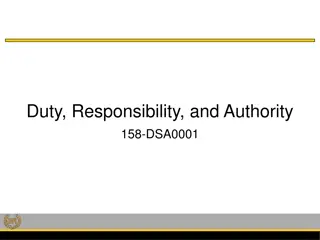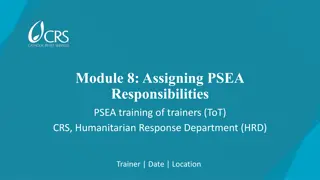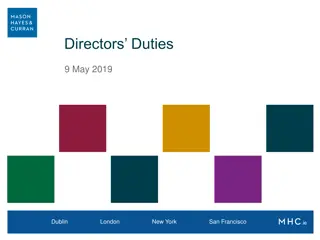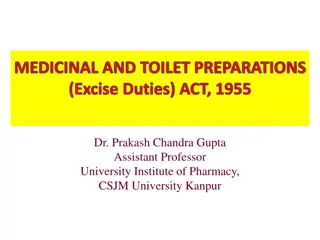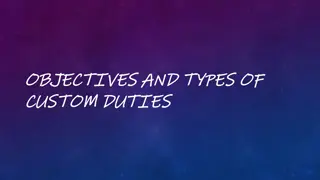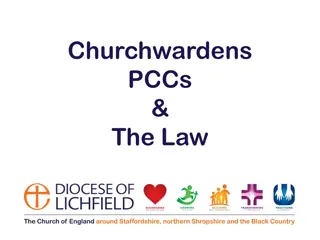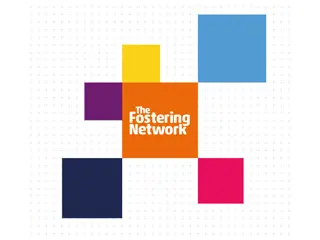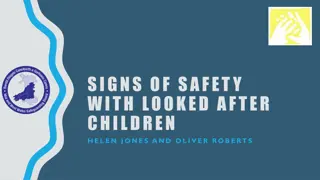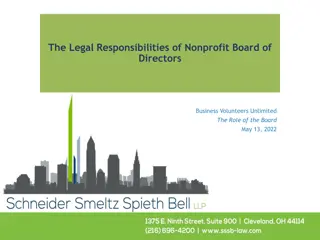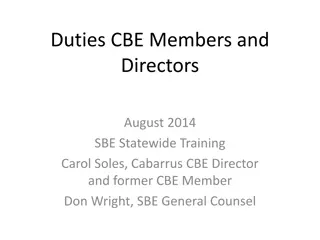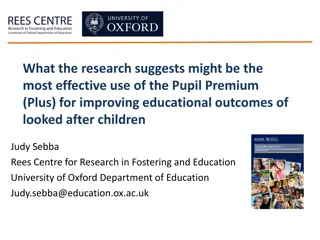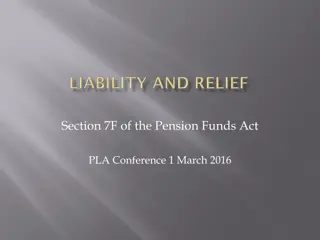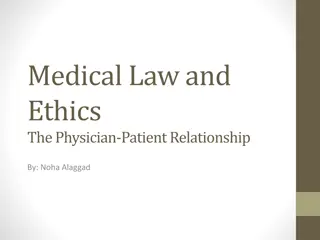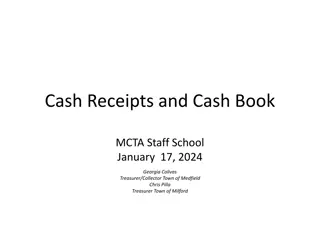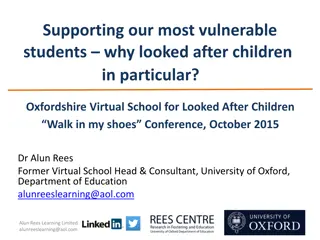Duties and Responsibilities towards Looked After Children
Promoting the well-being and development of looked-after children is a primary duty for local authorities. This includes safeguarding, educational support, care planning, and advocacy. The focus is on meeting the child's needs, ensuring their participation, and preparing them for adulthood. Principles of human rights, dignity, culture, and family involvement guide the care and support provided to these vulnerable children.
Download Presentation

Please find below an Image/Link to download the presentation.
The content on the website is provided AS IS for your information and personal use only. It may not be sold, licensed, or shared on other websites without obtaining consent from the author.If you encounter any issues during the download, it is possible that the publisher has removed the file from their server.
You are allowed to download the files provided on this website for personal or commercial use, subject to the condition that they are used lawfully. All files are the property of their respective owners.
The content on the website is provided AS IS for your information and personal use only. It may not be sold, licensed, or shared on other websites without obtaining consent from the author.
E N D
Presentation Transcript
Looked After and Accommodated Children Overview
Well-being and other overarching duties Promote the upbringing of the child by the child s family wherever possible Human rights You also need to have regard to the other overarching duties: Views, wishes, feelings Participation Dignity Culture A person exercising functions under this Act must seek to promote well-being includes a child s physical, intellectual, emotional, social and behavioural development, and welfare 1
Looked after children The principal duty of a local authority looking after a child (section 78) is that it must: safeguard and promote the child s well-being make such use of services available for children cared for by their own parents as appears to the authority reasonable in the child s case Safeguarding and promoting the well-being of a looked after child includes the duty to promote their educational achievement, and the duty to assess periodically whether the child has care and support needs and to meet those needs 2
Care and support planning and review for looked after children Care and Support Plan Health Plan Personal Education Plan Placement Plan Plan for Permanence Review Independent Reviewing Officer Monitor progress in meeting outcomes Pathway Plan From age 16 Outcomes for transition to adulthood Assessment of need How best to meet need Health assessment 3
The care and support plan Child centred Needs wishes and views of the child Child outcome focus Integrated Principles Overarching incorporating health, education, placement and long term plan Format of plan Outcomes and goals Child s needs and how they will be met and by whom Family contact Details of the placement Review Content of plan 4
Advocacy Looked after children and young people have a right to be supported to express their needs, views and wishes and be able to fully participate in the assessment and planning process and in decisions which affect them 5
Placements A parent A person with parental responsibility A person with a residence / child arrangement order A relative A friend Other person connected to the child Foster carer Children s home Prospective adopter Supported lodgings Secure accommodation 6
Visits to looked after children Looked after children must be visited to ensure: their well-being continues to be safeguarded and promoted they feel supported they receive advice or information if needed engagement with the child about their hopes and aspirations personal goals and outcomes are checked additional support or services are identified if needed Duty to appoint an independent visitor to meet the needs of the child 7
Leaving care responsibilities Preparation for adulthood and increased independence Requirement for pathway plan from age 16 Six categories of young people Appointment of Personal Advisor (PA) Review of pathway plan Keeping in touch Access to independent advocacy New duties to support post 18 living arrangements (When I am Ready scheme) 8
Support for care leavers Skills for independence and suitable accommodation Help with finances and money management Support for education, training and employment Good health Young care leaver Aspirations, hopes and personal goals Relationships, friends, leisure 9
Children and young people in the secure estate Some exclusions: accommodation and maintenance; some categories of young person Duties for care leavers and transition to adulthood Duties for the home local authority for looked after children 10


